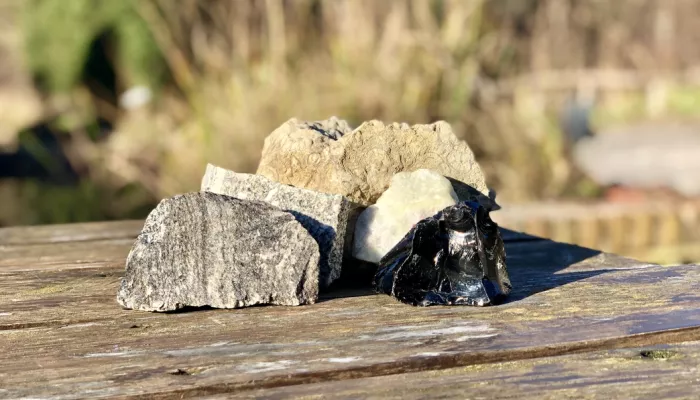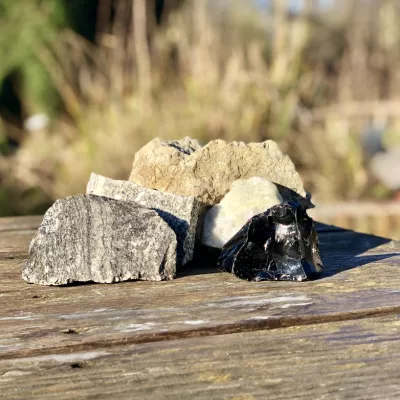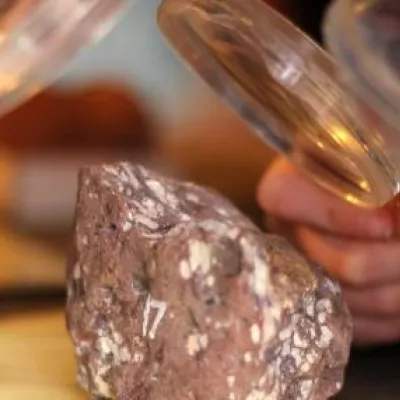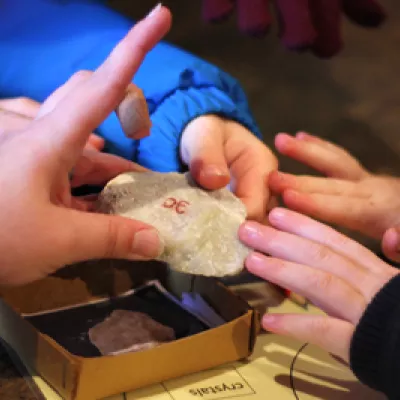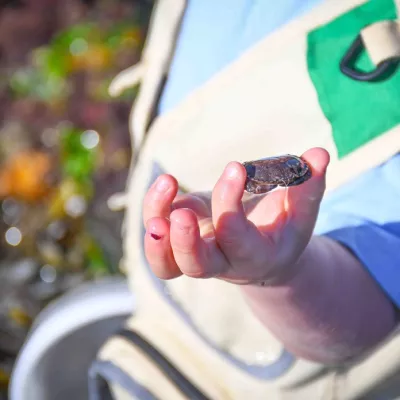In our rocks workshop, learners will be getting hands-on with our unique rock collection, gathered from across Kent and internationally. Learners will sort rock samples, learn how they fit into the rock cycle and get the chance to make their own fossil, learning about the process of fossilisation as they do so. In sorting the rocks, learners will gain an understanding of how rocks are groups according to certain characteristics and will gain an understanding of what different rocks are made up of.
Learners will also get hands on with soils, learning about the living and non-living components of soil. They’ll learn about different soil types, and how these influence habitats, and get the chance to learn about some of the creatures who live in soil.
- Venue: available at Tyland Barn Nature Park and Sevenoaks Wildlife Reserve
- Setting: Covered teaching shelter and indoor classroom
- Time: 50 minutes – 90 minutes (depending on number of groups per visit)
National Curriculum Links
- describe the simple physical properties of a variety of everyday materials
- compare and group together a variety of everyday materials on the basis of their simple physical properties.
- explore and compare the differences between things that are living, dead, and things that have never been alive
- identify and compare the suitability of a variety of everyday materials, including wood, metal, plastic, glass, brick, rock, paper and cardboard for particular uses
- find out how the shapes of solid objects made from some materials can be changed by squashing, bending, twisting and stretching.
- compare and group together different kinds of rocks on the basis of their appearance and simple physical properties
- describe in simple terms how fossils are formed when things that have lived are trapped within rock
- recognise that soils are made from rocks and organic matter.
- recognise that living things have changed over time and that fossils provide information about living things that inhabited the Earth millions of years ago

